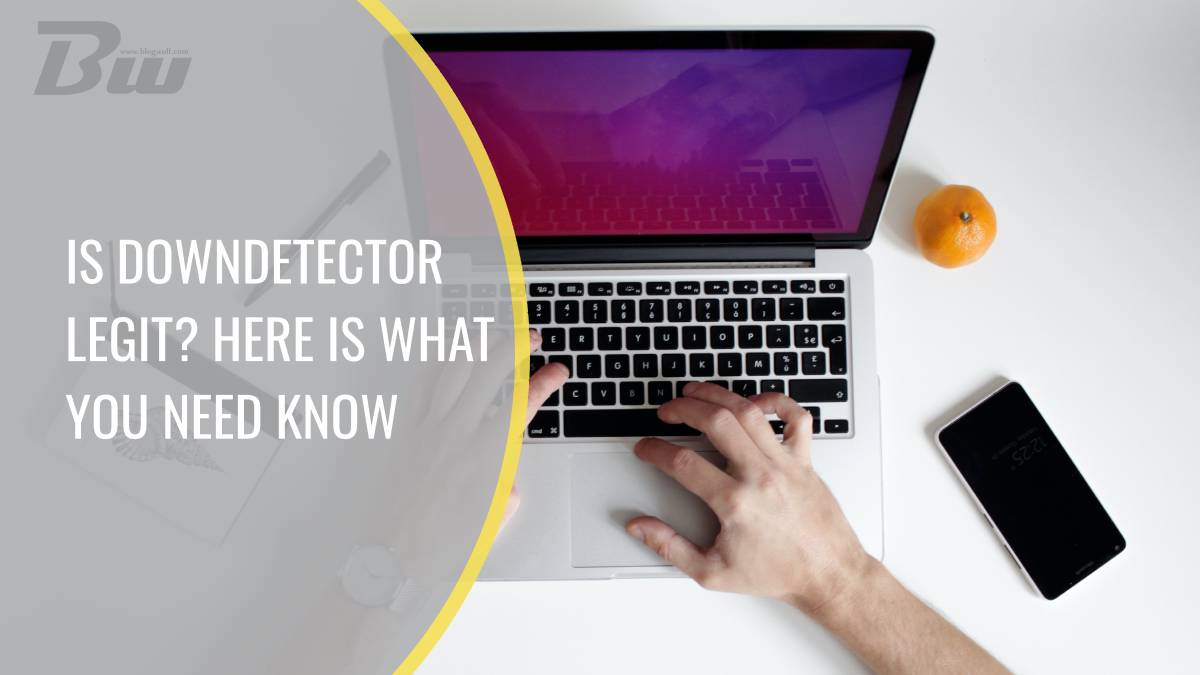Table of Contents
Have you ever experienced a sudden disruption in your internet service, only to frantically search for answers online and stumble upon Downdetector? This popular website claims to track real-time outages for various digital services, from social media platforms to online banking. But as the saying goes, don’t believe everything you read on the internet. The legitimacy of Downdetector has been a topic of debate among users and experts alike, raising questions about its reliability and accuracy. In this article, we will delve into the world of Downdetector to uncover the truth behind its operations and provide you with valuable insights on whether or not it is a credible source of information during service disruptions. Whether you’re a casual user curious about its reliability or a business owner relying on it for monitoring purposes, this is what you need to know about Downdetector.
What is Downdetector?
Downdetector is a powerful tool that has revolutionized the way we monitor and track online service outages. It provides real-time data on the status of popular websites, apps, and online services, helping users identify when a particular platform is experiencing technical difficulties. By aggregating user reports and conducting its own monitoring, Downdetector offers valuable insights into widespread service issues that might otherwise go unnoticed.
One of the key advantages of Downdetector is its ability to crowdsource information from users around the world, creating a comprehensive picture of service disruptions. This community-driven approach allows for swift identification of emerging problems and helps users make informed decisions about which platforms are currently experiencing issues. Additionally, Downdetector’s intuitive interface provides clear visualizations of outage patterns, enabling users to quickly assess the severity and scope of any service interruptions.

How Does Downdetector Work?
Downdetector is a powerful tool that provides real-time insights into the status of various websites, online services, and mobile apps. It operates by aggregating reports from users who are experiencing issues with these platforms, allowing for a comprehensive overview of outages and disruptions. By analyzing this crowdsourced data, Downdetector can pinpoint trouble spots and provide valuable information to both consumers and service providers. Furthermore, the platform employs sophisticated algorithms to filter out spam or irrelevant reports, ensuring the accuracy and reliability of the information presented.
One of the most fascinating aspects of Downdetector is its ability to detect subtle disruptions that may go unnoticed by individual users. This means that even minor incidents can be identified early on, potentially preventing larger scale problems in the future. Moreover, Downdetector’s user-friendly interface makes it easy for anyone to access real-time outage maps and detailed reports, empowering consumers to make informed decisions about their online activities. In essence, Downdetector harnesses the collective experiences of internet users worldwide to create a dynamic resource for tracking digital service performance—a testament to its legitimacy as an invaluable tool in today’s interconnected world.
Accuracy of Downdetector Data
The accuracy of Downdetector data has been a topic of debate among users and industry experts. While Downdetector provides valuable insights into service outages and disruptions, some have questioned the reliability of its data. One key factor to consider is the user-generated nature of Downdetector’s reports. This means that the information is based on individual user experiences and may not always provide a comprehensive overview of an outage.
It’s important to acknowledge that Downdetector can be a useful tool for identifying potential issues with internet services, social media platforms, and other online services. However, it’s essential for users to interpret the data with caution and consider additional sources of information. While Downdetector can signal potential problems, it should not be the sole basis for making decisions about service reliability or performance.
Overall, recognizing the limitations of Downdetector’s data while also appreciating its value as a crowdsourced platform can help users navigate service disruptions more effectively. By combining Downdetector’s insights with other monitoring tools and official announcements from service providers, individuals can gain a more comprehensive understanding of online service availability and make informed decisions during outages.

Criticisms and Controversies Surrounding Downdetector
Downdetector has become a go-to platform for many users seeking real-time outage information for various online services. However, it hasn’t been immune to criticisms and controversies. One common criticism is that Downdetector’s data can be skewed by user reports, leading to inaccuracies and misleading information. This has led some to question the reliability of the platform, especially during high-profile outages where emotions run high.
Additionally, Downdetector has faced controversy over its business model and potential conflicts of interest. Some users have raised concerns that the platform may prioritize certain companies or offer preferential treatment based on financial incentives, raising questions about the neutrality and independence of its reporting. These criticisms have sparked debates about the need for more transparency and accountability in how Downdetector collects, verifies, and presents outage data to its users.
User Tips for Using Downdetector
When using Downdetector, it’s essential to remember that the platform relies on user reports to track outages and issues. Therefore, users can contribute to the accuracy of the data by reporting their own problems. This means actively participating in submitting outage reports or checking for similar issues reported by others. Moreover, it’s important for users to consider the context of the reported problems; just because a service is down in one area doesn’t mean it’s a widespread issue. By staying informed about regional outages and understanding the limitations of user-generated data, individuals can make more informed decisions based on Downdetector’s information.
Another useful tip for utilizing Downdetector effectively is understanding that not all reported issues are related to actual service disruptions. Sometimes, an individual user’s connectivity problems or device malfunctions can be mistaken for larger-scale outages on the platform. Users should verify whether their own devices are causing problems before assuming a widespread outage based solely on Downdetector data. It’s also important to cross-reference Downdetector with official status pages from service providers when possible, as this can provide more comprehensive insights into real-time service interruptions.

Conclusion: Understanding the Reliability of Downdetector
In conclusion, understanding the reliability of Downdetector requires a nuanced approach. While it can serve as a valuable tool for identifying potential outages and disruptions, it is essential to remember that user-reported data comes with inherent limitations. Factors such as user error, biases, and the very nature of crowd-sourced information must be taken into account when interpreting Downdetector’s reports.
It is also crucial to consider the context in which Downdetector is used. For major services and platforms with millions of users, the crowdsourced data on Downdetector often provides a fairly accurate representation of widespread issues. However, for smaller or more localized services, the data may not be as reliable due to lower participation levels. Therefore, while Downdetector can offer valuable insights into potential service interruptions, its reliability should always be cross-referenced with official statements from the affected companies for a complete understanding of any reported issues.
Overall, while Downdetector holds significant utility in alerting users to potential service disruptions, its reliability should be approached with caution and critical thinking. Understanding its strengths and weaknesses will allow users to make informed decisions based on its reports without solely relying on them as definitive sources of truth.

